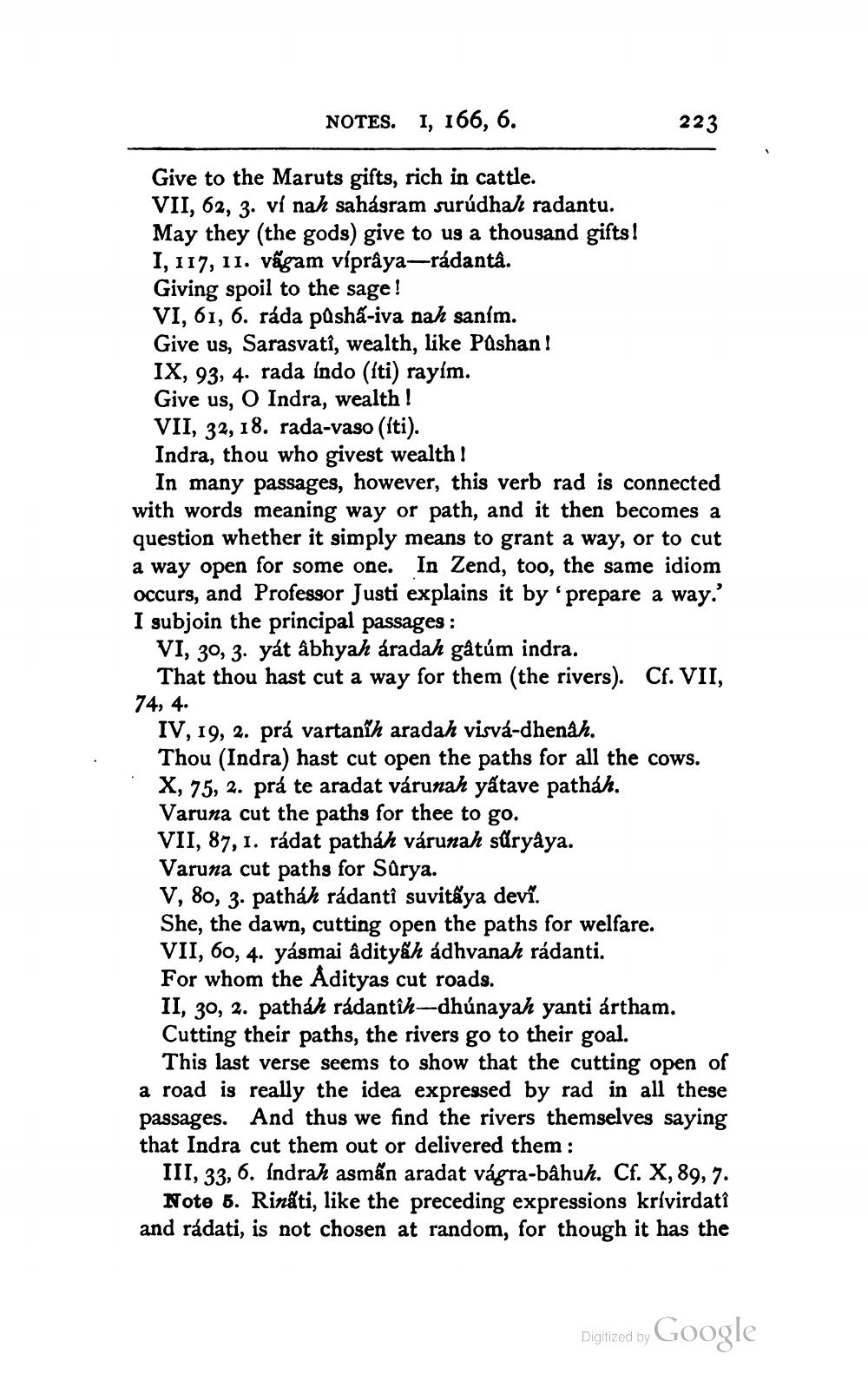________________
NOTES. I, 166, 6.
223
Give to the Maruts gifts, rich in cattle. VII, 62, 3. ví nah sahásram surúdhal radantu. May they (the gods) give to us a thousand gifts! 1, 117, 11. vágam viprầya-rádantà. Giving spoil to the sage! VI, 61, 6. ráda pasha-iva nah saním. Give us, Sarasvatî, wealth, like Pashan! IX, 93, 4. rada indo (iti) rayim. Give us, O Indra, wealth! VII, 32, 18. rada-vaso (iti). Indra, thou who givest wealth!
In many passages, however, this verb rad is connected with words meaning way or path, and it then becomes a question whether it simply means to grant a way, or to cut a way open for some one. In Zend, too, the same idiom occurs, and Professor Justi explains it by 'prepare a way.' I subjoin the principal passages : VI, 30, 3. yát abhyah aradah gåtúm indra.
That thou hast cut a way for them (the rivers). Cf. VII, 74, 4.
IV, 19, 2. prá vartanih aradah visvá-dhenah. Thou (Indra) hast cut open the paths for all the cows. X, 75, 2. prá te aradat várunah yấtave patháh. Varuna cut the paths for thee to go. VII, 87, 1. rádat patháh várunah süryâya. Varuna cut paths for Sûrya V, 80, 3. patháh rádanti suvitấya deví. She, the dawn, cutting open the paths for welfare. VII, 60, 4. yásmai adityah adhvanah rádanti. For whom the Adityas cut roads. II, 30, 2. pathah rádantîh-dhúnayah yanti ártham. Cutting their paths, the rivers go to their goal.
This last verse seems to show that the cutting open of a road is really the idea expressed by rad in all these passages. And thus we find the rivers themselves saying that Indra cut them out or delivered them :
III, 33, 6. Indrah asmãn aradat vágra-bâhuh. Cf. X, 89, 7.
Note 5. Rināti, like the preceding expressions krivirdatî and rádati, is not chosen at random, for though it has the
Digitized by
Digized by Google




